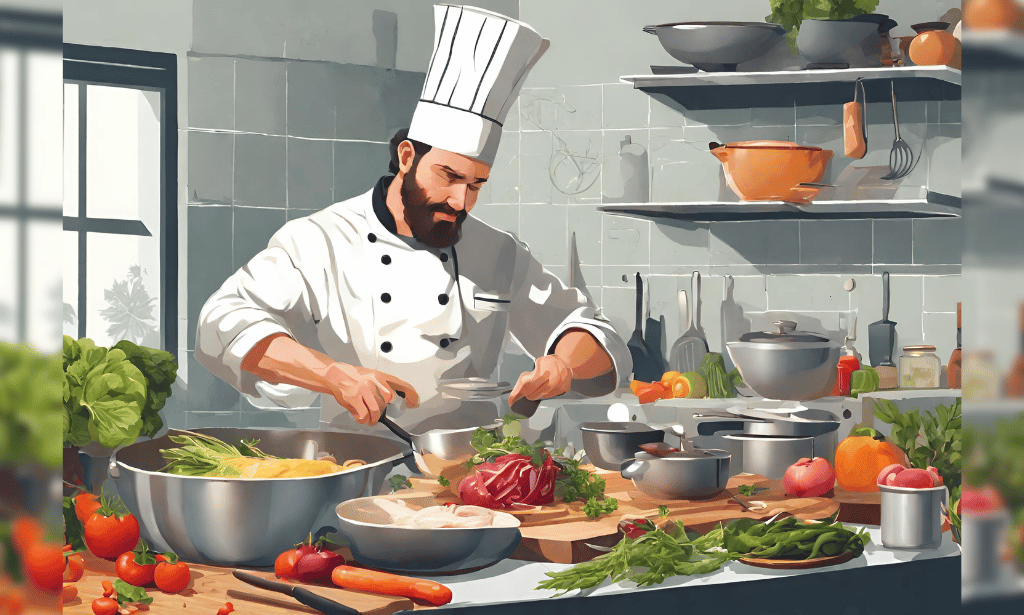Tips and Tricks in the Kitchen: Mastering Culinary Skills
Explore a comprehensive guide to mastering culinary skills with essential tips and tricks for efficient meal planning, cooking techniques, flavor enhancement, kitchen safety, and more.

Essential Kitchen Tools
In the realm of culinary arts, having the right tools is paramount to success. Investing in quality knives can significantly enhance your cooking experience. Opt for a chef's knife, paring knife, and serrated knife for versatility in cutting various ingredients. Additionally, ensure you have a reliable cutting board to protect your countertops and maintain knife sharpness. Stock your kitchen with essential utensils like spatulas, tongs, and whisks for seamless meal preparation.
Effective Meal Planning
Meal planning is the cornerstone of a well-organized kitchen. Begin by organizing your pantry, ensuring easy access to staple ingredients. Create weekly menus to streamline grocery shopping and minimize food waste. Consider batch cooking large quantities of meals that can be portioned and frozen for convenience during busy weekdays.
Cooking Techniques
Mastering cooking techniques is fundamental to becoming a proficient chef. Learn to control heat levels to prevent burning or undercooking food. Hone your knife skills to dice, chop, and julienne ingredients with precision. Familiarize yourself with cooking times and temperatures for different dishes to achieve optimal results.
Flavor Enhancement
Elevate your dishes with flavor enhancement techniques. Experiment with seasoning to enhance the taste of your meals. Balance flavors by incorporating sweet, salty, sour, and umami elements into your cooking. Explore the world of herbs and spices to add depth and complexity to your recipes.
Kitchen Safety
Safety should always be a top priority in the kitchen. Practice proper handling of knives to avoid accidents. Prevent cross-contamination by using separate cutting boards for raw meat and produce. Implement fire safety measures such as keeping flammable objects away from the stove and having a fire extinguisher on hand.
Efficient Cleaning Tips
Maintaining a clean kitchen is essential for food safety and hygiene. Adopt the habit of cleaning as you go to minimize post-cooking mess. Deep clean appliances regularly to prevent grease buildup and prolong their lifespan. Explore eco-friendly cleaning solutions to reduce your environmental footprint.
Food Storage Strategies
Maximize the shelf life of your ingredients with effective food storage strategies. Use airtight containers to keep pantry staples fresh and prevent pests. Utilize proper labeling and organization to easily identify stored items. Employ freezing tips to preserve perishable foods for extended periods.
Cooking for Special Diets
Accommodate dietary restrictions and preferences with specialized cooking techniques. Explore vegan and vegetarian cooking options for plant-based meals. Learn gluten-free cooking tips for those with celiac disease or gluten sensitivity. Practice allergen awareness to prevent adverse reactions in guests with food allergies.
Creativity in the Kitchen
Unleash your creativity in the kitchen by experimenting with new flavors and ingredients. Embrace culinary creativity by combining diverse cuisines and cooking techniques. Elevate your dishes with artistic food presentation techniques to delight both the eyes and the palate.
Utilizing Leftovers
Transform leftovers into delicious meals with innovative recipes and cooking methods. Reinvent last night's dinner by incorporating it into new dishes. Get creative with leftover ingredients to minimize food waste and maximize your culinary repertoire.
Time-Saving Techniques
Streamline meal preparation with time-saving techniques that optimize efficiency. Explore one-pot meal recipes for minimal cleanup and maximum flavor. Harness the power of instant pots for quick and convenient cooking. Whip up nutritious breakfasts in minutes to fuel your day.
Culinary Resources
Expand your culinary knowledge with a plethora of resources available at your fingertips. Enroll in online cooking classes to learn new techniques from expert chefs. Explore diverse cuisines and recipes with recommendations from trusted cookbooks. Seek inspiration from food blogs that showcase innovative culinary creations.
Staying Inspired
Keep your passion for cooking alive by staying inspired and engaged in the culinary world. Challenge yourself to try new recipes regularly to expand your skill set. Host cooking parties with friends and family to share your love of food and camaraderie. Join cooking communities to connect with like-minded individuals and exchange culinary tips and tricks.
Culinary Etiquette
Master the art of culinary etiquette to enhance your dining experiences. Impress your guests with elegant table settings and proper dining etiquette. Brush up on hosting skills to ensure memorable gatherings with friends and family. Practice courteous behavior when dining out to respect restaurant staff and fellow patrons.
Continuous Learning
Cultivate a lifelong love of learning by continuously seeking new culinary experiences. Attend cooking workshops and demonstrations to refine your skills and discover new techniques. Stay informed about culinary trends and innovations by following reputable food magazines and online publications.
Conclusion
Embark on a culinary journey filled with exploration, creativity, and learning. With these tips and tricks, you'll be well-equipped to master the art of cooking and delight your taste buds with delicious homemade meals.
FAQs (Frequently Asked Questions)
1. How can I improve my knife skills?
Practice regularly with a sharp knife and focus on proper technique. Consider taking a knife skills class for personalized instruction.
2. What are some eco-friendly cleaning solutions for the kitchen?
Vinegar, baking soda, and lemon juice are natural alternatives to commercial cleaning products. They are effective at removing stains and odors without harsh chemicals.
3. What's the best way to store fresh herbs to keep them from wilting?
Trim the stems and place the herbs in a glass of water, similar to flowers. Cover them loosely with a plastic bag and store them in the refrigerator for extended freshness.
4. How can I make meal planning more exciting and diverse?
Experiment with cuisines from different cultures and explore new ingredients to keep meal planning interesting. Get inspiration from cookbooks, food blogs, and culinary magazines.
5. What should I do if a recipe doesn't turn out as expected?
Don't be discouraged! Analyze what went wrong and learn from the experience. Adjust seasoning or cooking techniques as needed and try again.

You must be logged in to post a comment.